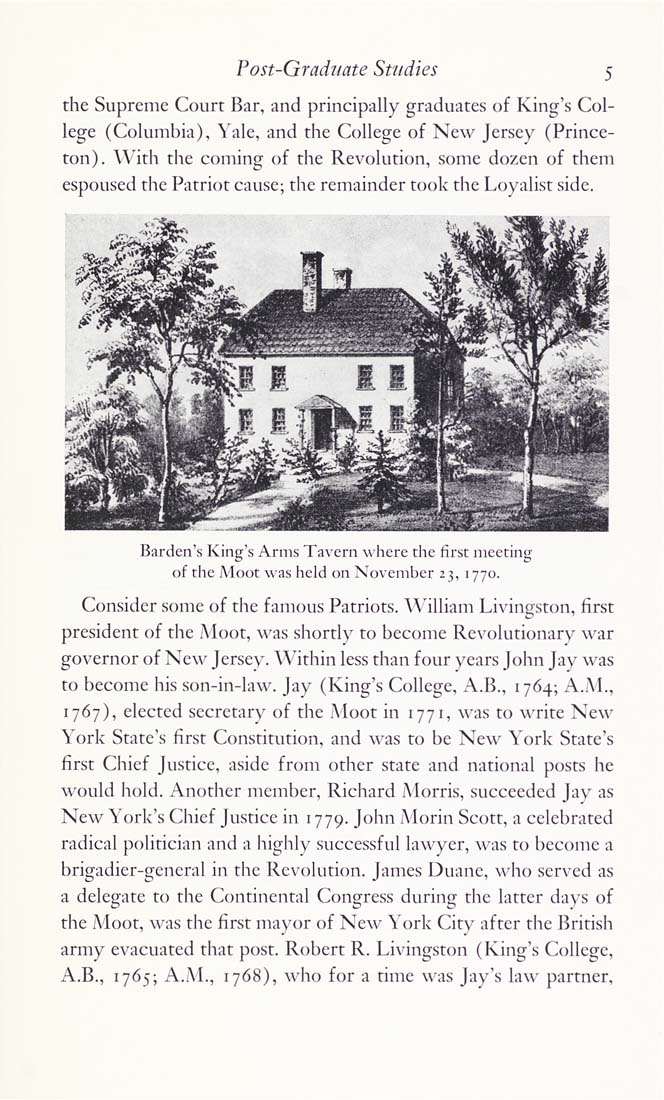Columbia Library columns (v.27(1977Nov-1978May))
(New York : Friends of the Columbia Libraries. )
|
||
|
|
|
|
| v.27,no.3(1978:May): Page 5 |

Post-Graduate Studies 5 the Supreme Court Bar, and principally graduates of King's Col¬ lege (Columbia), Yale, and the College of New Jersey (Prince¬ ton). With the coming of the Revolution, some dozen of them espoused the Pattiot cause; tlie remainder took the Loyalist side. Hardcn's King's Arms Tavern where the first mcctiiiir of the Moot was held on November 23, 1770. Consider some of the famous Patriots. William Livingston, first president of the Moot, was shortly ro become Revolutionary war governor of New Jersey. Within less than four years John Jay was to become his son-in-law. Jay (King's College, A.B., 1764; A.M., 1767), elected secretary of the .Moot in 1771, was to write New York State's first Constitution, and was to be New York State's first Chief Justice, aside ftom other state and national posts he would hold. Anodicr member, Richard Morris, succeeded Jay as New York's Chief Justice in 1779. John Morin Scott, a celebrated radical politician and a highly successful lawyer, was to become a brigadier-general in the Revolution. James Duane, who served as a delegate to the C^ontinental Congress during the latter days of rhe Moot, was tlie first mayor of New York City after the Btitish army evacuated that post. Robert R. Livingston (King's College, A.B., 1765; A.M., 1768), who for a time was Jay's law pattner. |
| v.27,no.3(1978:May): Page 5 |







